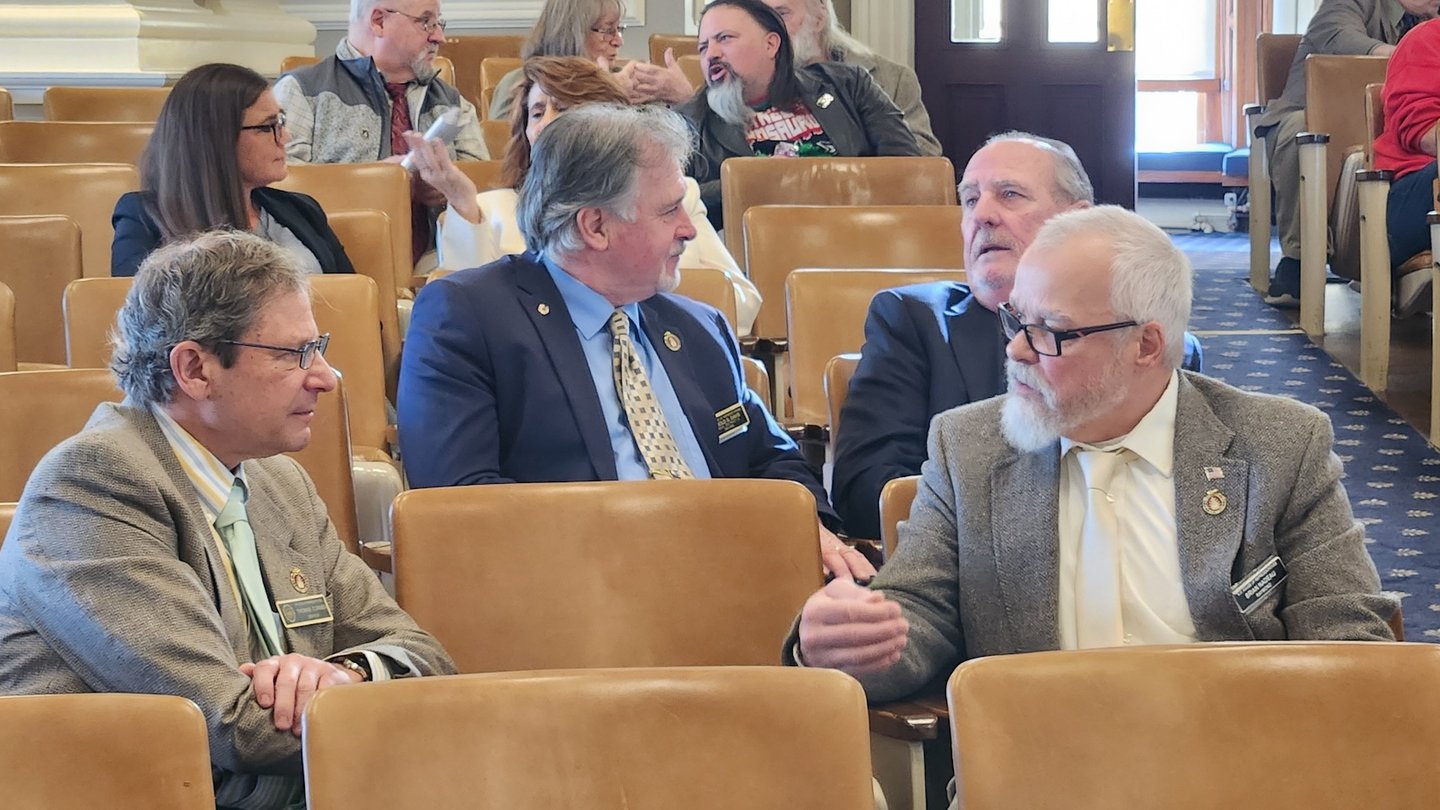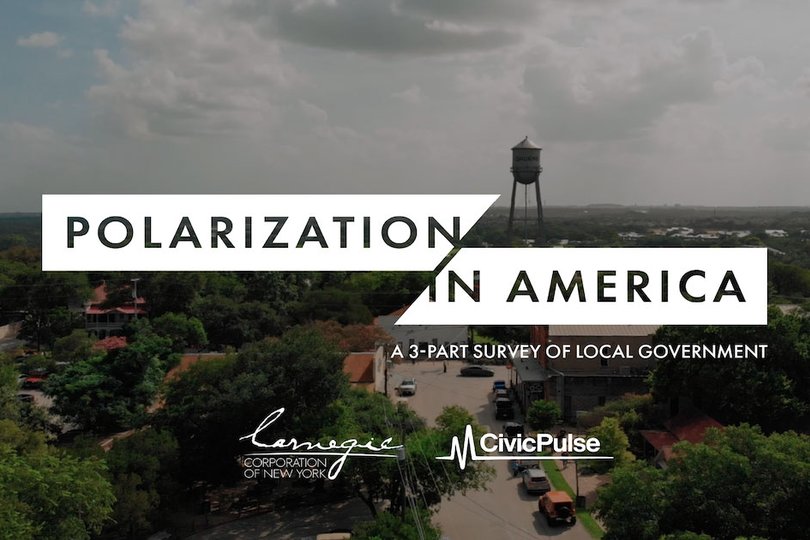In another era, the budget discussion of a nursing home project in Strafford, New Hampshire, might have been routine. Which construction bid was best? Which features were essential? Instead, it “descended into personal attacks,” said Allan Howland, Strafford’s representative in the state legislature, calling it one of “the worst” meetings he’d ever attended.
Political polarization is part of everyday life in America — even in New Hampshire, where citizens have long met with presidential hopefuls of both parties during primary season. In Strafford, in late 2023, debates over a $170 million proposal for a 215-bed nursing home exploded into shouting matches, threats, and demands for an investigation. The project collapsed the following spring.
Howland, a Democrat, spoke to a December gathering in the sun-dappled state house chamber, where he and more than 90 fellow state legislators from different parties were attending a workshop on how to avoid such debacles. Howland believed bipartisanship was the “the only way forward,” but said “horrible” experiences like the nursing home fight weighed on him.
The two-hour workshop, led by a nonprofit called Braver Angels, aimed to help. Founded in 2016, Braver Angels hosts trainings for groups like legislators, educators, faith communities, and the media, offering practical tools for patching up fractured political and personal relationships.
New Hampshire’s session was co-moderated by Beth Malow, a neurologist and science communicator who has worked with Braver Angels since 2017. Standing at the House Speaker’s dais, Malow reminded the lawmakers, “We’re here to talk skills, not policies. We’re not going to solve the polarization problem in our country today.”
The first principle: “If you're going to disagree with someone, focus on connecting first.” Instead of starting off with debate, Malow suggested empathy, such as: “Hey, I get that. I get why you feel that way. I understand your concern.”
Co-moderator Paul Catsos asked each legislator to partner with someone from another party and share with each other, then the whole group, why they had come.
“We have to figure out how to listen and learn from each other to get anything done,” said Sullivan County Rep. Hope Damon, a Democrat. “I am gravely concerned that if we don’t see each other as human beings who basically all want the same things — a safe, productive, comfortable life — we will disintegrate into something very ugly.”
For practice, Malow laid out two typical opposing positions on the real-world issue of crime and law enforcement. Position one: “There are some bad apples in law enforcement, but most officers are doing a good job, and it's demoralizing for them to hear that our elected officials don't support them.” Position two: “Crime comes from poverty and discrimination, and it can only be solved by addressing these problems.”
At Malow’s direction, each legislator identified which position they disagreed with more. Then, they drafted statements to address someone holding that position, to show that they understood it.
Lebanon Rep. Tom Cormen, a Democrat, acknowledged position one: “You’re concerned about increasing crime and the effect of anti-policing talk — it demoralizes law enforcement, and you hope that the community will support the police.”
Allenstown Rep. Matthew Pitaro, a Republican, responded to position two: “I am happy to hear your proposal addresses multiple avenues of approach.”
Malow noted that if such descriptions were inaccurate, voicing them offered the other person an opportunity to address them.
Then, she asked legislators to find new partners and search for an area of agreement, no matter how small. “If it’s a policy that you can’t agree with, maybe you can recognize a common value.”
“This topic is important for us to focus on and deserves our attention,” said Nicholas Bridle, a Hampton Republican.
Seth Miller, a Democrat representing Dover, responded, “I think we agree that there’s a large challenge around public safety, and we need to come up with a solution to address that.”
Mark Pearson, a Rockingham Republican: “I agree we need to address better the issues of discrimination, poverty, and mental health.” Common ground seemed to be growing.
Malow praised the group. “You guys are just nailing this.” Nods and smiles increased.
Toward the end of the session, a few legislators shared their gratitude.
Eric Turer, a Democrat representing a swing district, said he had recently helped bring a Braver Angels session to his community. “The folks that I least expected to attend that event were who showed up,” he said. People from opposing political camps “worked through this exercise, and left understanding each other as people. I can still see those little seeds growing in our town.”
House Speaker Sherman Packard, a Republican representing Rockingham, sounded upbeat. “Let’s carry forward the lessons learned today, and remember that even when we disagree, we must always strive to engage with understanding and respect,” he said. The workshop, he added, “certainly opened a lot of minds as to how we can move forward over the next two years.”
Douglass Teschner, Braver Angels’ New England regional leader and a former New Hampshire state representative, closed out the session. “You are leaders and people are watching you,” he told the group. “Maybe how you treat each other is more important than any legislation you're going to pass.”
Joanne Omang is a former reporter, foreign correspondent, and editor for the Washington Post. The Post’s first woman foreign correspondent, she is now a freelance writer, editor, and consultant.
About Braver Angels
Established in 2016, Braver Angels is one of the nation’s leading grassroots political depolarization organizations and a Carnegie grantee. Its newest initiative, Braver Politics, fosters opportunities for elected officials, staff members, and constituents — at the national, state, county, and local levels — to develop the skills and commitment to work together across political differences.




